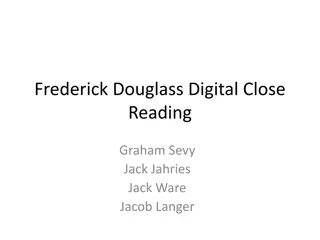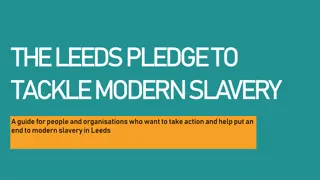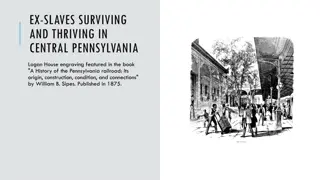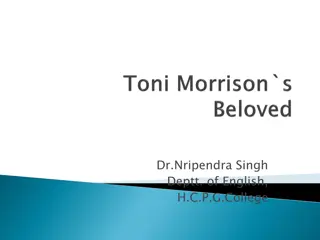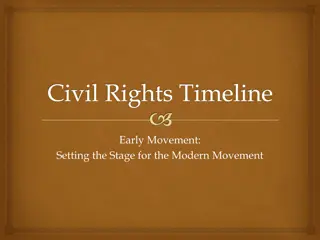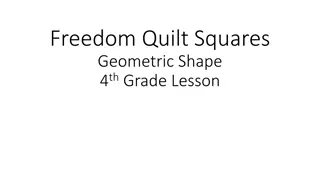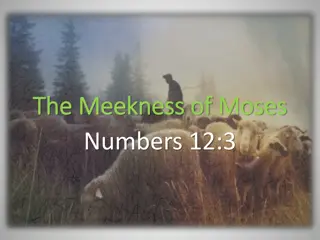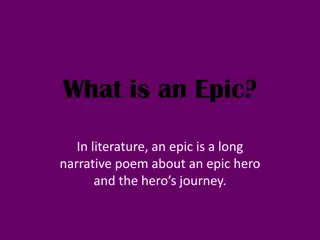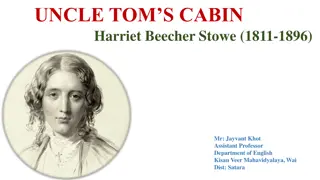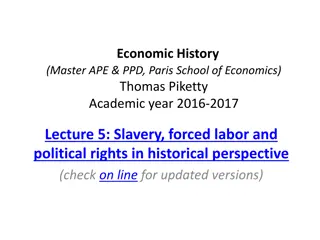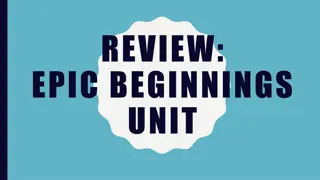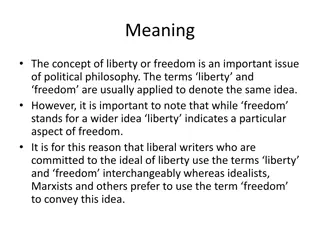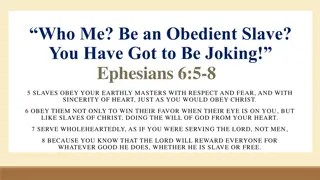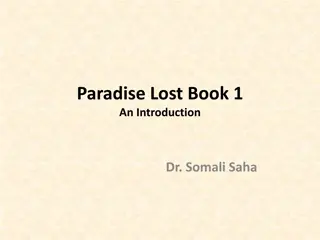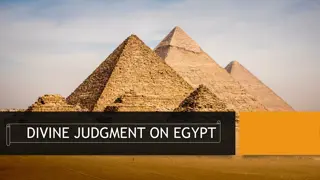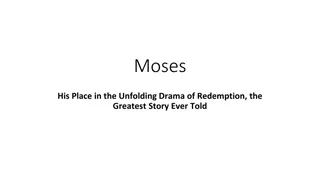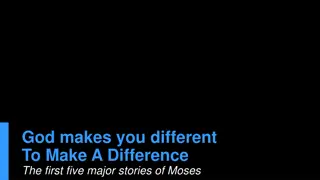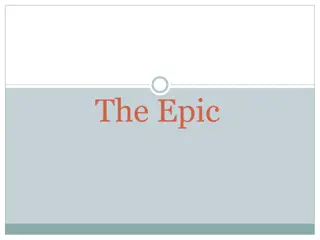The Epic Journey of Moses: From Slavery to Freedom
Moses, a royal baby adopted by Pharaoh's daughter, emerges as an epic hero leading the Israelites from slavery in Egypt to the promised land of Canaan. Guided by divine intervention, he unleashes plagues upon Egypt, persuades Pharaoh to release his people, and miraculously parts the Red Sea. The Israelites journey through trials, receiving manna from heaven, illustrating a narrative of faith, liberation, and divine providence.
Download Presentation

Please find below an Image/Link to download the presentation.
The content on the website is provided AS IS for your information and personal use only. It may not be sold, licensed, or shared on other websites without obtaining consent from the author.If you encounter any issues during the download, it is possible that the publisher has removed the file from their server.
You are allowed to download the files provided on this website for personal or commercial use, subject to the condition that they are used lawfully. All files are the property of their respective owners.
The content on the website is provided AS IS for your information and personal use only. It may not be sold, licensed, or shared on other websites without obtaining consent from the author.
E N D
Presentation Transcript
Moses as an Epic Hero Royal birth: both mother and father of the tribe of Levi, ties him to Jacob/Israel because Levi was one of the 12 sons. Also adoption by the Pharaoh s daughter ties him to Egyptian royal line. Benefits people materially: frees from slavery, leads to the land of milk and honey Divinely lead: Burning bush, Mt. Sinai, direct conversations with God Superhuman powers/strengths: during the plagues he performs great acts, his staff turns into a snake, changes water to blood, dust to gnats, soot causes boils Extremely handsome/beautiful: does not apply to Moses. His physical traits are not discussed. The story of Exodus fits the criteria of an epic narrative, so we ll make an exception.
Background The Covenant Jacob (name changed to Israel) and his 12 sons were brought to Egypt and given the land of Goshen. God cared for them and rescued them from famine in Canaan. The Israelites stayed for 400 years, working for the Egyptians and becoming exploited as slaves. They continued to multiply. The Pharaoh was threatened by their numbers. He ordered the boy children be killed. Hard labor was increased. Moses was called out of hiding and sent back to Egypt because God had heard the cries of his people and remembered their covenant. Moses is sent to Egypt to free the Israelites from bondage and give them the promised land: Canaan, flowing with milk and honey.
The 10 plagues Staff turns to snake, Pharaoh s magicians can emulate this, but Moses s snake eats their snakes. Nile turned to blood. Magicians copy. Fish die; river stank Frogs. Magicians do the same. Frogs die and the earth stank. Gnats. All the dust rose up and became gnats. Magicians cannot perform. Flies which stop at the land of Goshen. Pestilence on the livestock. Only Egyptian animals suffer. Storm, hail and fire all flax and barley destroyed. While the Pharaoh would not listen, some Egyptians took their livestock and slaves in according to the warning. Locust ate the wheat, all grains, everything, nothing green remained. Darkness 3 days of thick darkness. (Sons of Israel had light) Passover Israelite are instructed to paint the door lintel with lambs blood. Those houses which are marked, the angel of Death will pass over. Those not painted, the first born son will die.
Pharaoh relents Pharaoh lets the people go. All the Israelites, men, women and children, and their live stock. Also take all their goods and gold with them. Pharaoh changes his mind and goes after them. The Israelites are trapped between the Red Sea and the approaching Egyptian army. What? There weren t enough graves in Egypt, you have to bring us to the desert to die? Moses parts the Red Sea.
Manna from heaven Israelites grumble and want to return to Egypt - mmmm fleshpots. God sends manna. As the dew evaporates, a bread like substance is left behind. Manna is Hebrew word for What? So they referred to the food as whatchamacallit . Strick instructions to take only what they need for the day. IF they took extra it would instantly rot, burst out in worms and mold. For the Sabbath they could take twice as much, no more, no less. In context of the stewardship mandate GEN 1:28 this is training or reprogramming to rid them of the Egyptian standards of gluttony. They cannot enter the land of milk and honey before they are capable of living without exploiting natural resources.
Ten Commandments You shall have no other gods before me. Do not make an idol or graven image. Do not take the name of Lord in vain. Remember the Sabbath and keep it holy. Work 6 days and rest on the 7th. Honor your father and mother. You shall not murder You shall not commit adultery You shall not steal. You shall not bare false witness. You shall not covet your neighbors wife.
What does this tell us about the structure of their society? Some of these commandments are common sense. Communities of liars and murderers cannot flourish. But other laws speak more to what is important to these people. Having no other gods is unique to the Hebrews. Honor you father and mother. This goes beyond the common sense of loving your mama. As a people of covenant, where meeting responsibilities is met with rewards, the people honor the traditions of the past so they continue to receive the land and promises.





